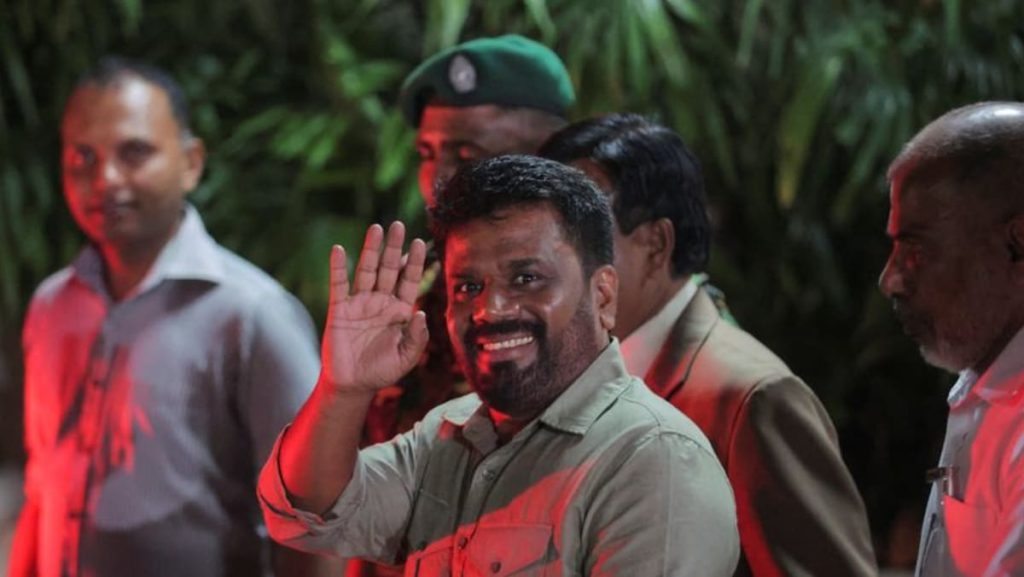Anura Kumara Dissanayaka, a self-described Marxist and member of the People’s Liberation Front (JVP), emerged as the victor in Sri Lanka’s recent presidential election, securing a significant mandate from the public due to widespread dissatisfaction with the country’s economic crisis. Dissanayaka’s party, the JVP, has a history of leading unsuccessful uprisings that resulted in significant casualties, but his promise to address the current economic hardships faced by ordinary Sri Lankans resonated with voters. His victory, with nearly 1.3 million more votes than his closest competitor, signifies a shift in the country’s political landscape.
The economic meltdown of 2022 in Sri Lanka played a crucial role in propelling Dissanayaka to victory, as the population faced severe challenges and hardships as a result. Dissanayaka himself acknowledged the sacrifices made by countless individuals who had worked towards the cause of improving the country’s situation. In a statement following his win, he expressed gratitude for those who had given their efforts, tears, and even lives towards this goal. He emphasized that the dream of a better future for Sri Lanka, held for generations, was finally within reach with his election.
Dissanayaka’s inauguration as president was scheduled for the following day after his election win, to take place at the President Secretariat in Colombo. The timing of his swearing-in ceremony indicates a swift transition of power, reflecting the urgency and expectations surrounding his presidency. The 55-year-old politician’s ascent to the presidency marks a significant moment in Sri Lankan history, with the promise of positive change and a new direction for the country.
The sentiments of hope and anticipation were palpable following Dissanayaka’s victory, with millions of Sri Lankans looking towards the future with optimism. The collective effort and support of the population were highlighted as integral to this historic win, signaling a sense of unity and determination in rewriting the country’s history. Dissanayaka’s message of inclusivity and shared responsibility resonated with the electorate, as they rallied behind his vision for a better, more prosperous Sri Lanka.
As Dissanayaka prepared to officially assume the presidency, the country faced a range of complex challenges and issues that would require immediate attention and resolution. The economic crisis, which had been a key factor in his election victory, would undoubtedly be a top priority for the new administration. Dissanayaka’s leadership style and policy approach would be closely watched as he embarked on the task of steering Sri Lanka towards stability, growth, and progress. The expectations placed on him by the electorate were high, and the road ahead would likely be marked by both opportunities and obstacles as he sought to deliver on his promises of change.













